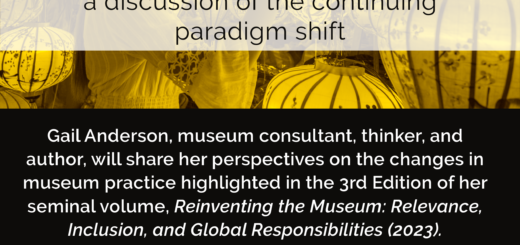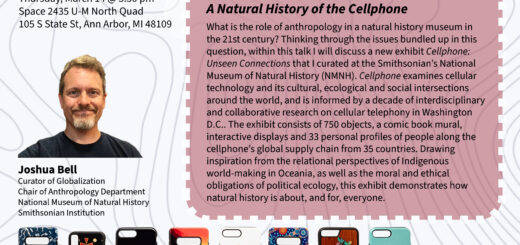What To Do When You Inherit a Failing Museum?

Graduation. All that hard work has finally paid off. You’ve spent years getting your advanced degree, and now you’ve got it—with a certificate in Museum Studies to boot. And even better is you’ve got a job lined up!
This was my experience when I left Michigan in 2015 to become the director of the Museum of Anthropology at Wake Forest University in Winston-Salem, North Carolina. As I settled into my office on Day One, I reflected on the road that brought me here. I had gotten my education, written my application materials, spoken with the hiring committee over Skype, and flown to campus to interview. It wasn’t until I was in the museum for which I was now responsible that I could turn the corner and see the road ahead.
“Frankly, the museum is in bad shape.” These were the words I heard on Day Two from my department chair (my colleague responsible for reporting to the Dean, who parallels the role of a museum board outside of academic settings). It turned out the museum was failing. Despite 30,000 artifacts in its collection and permanent gallery space on campus, nobody used these resources. Faculty didn’t teach with the collections. Students didn’t do research on them. There was a robust and well-loved outreach program to local schools, but few people on campus knew we existed. I’ll probably never know if this was a literal statement or not, but I would eventually hear that before I was hired, the Dean “flipped a coin” to determine if they should just close down the museum and appropriate its funding to another program. I guess it was heads.
In either case, I realized there was a lot do. Fortunately, my education and training in the Museum Studies Program prepared me for this. Yes, there was a lot to do, a lot to accomplish, a lot to prove—but, it wasn’t rocket science to find the fault. The museum had lost support and relevancy by not aligning its mission and programs with its most important stakeholders. If MSP taught me one thing, it’s that stakeholders matter. A lot. Success in museums means identifying, engaging, and satisfying stakeholders. Of course you need to be an expert in the “stuff.” My PhD is in archaeology. I love the stuff! But, the stuff doesn’t keep the LED track lights on. Our stakeholders, and their continual investment in our mission, keep us going.
I am so thankful to have been able to talk about these issues in an interdisciplinary forum like the MSP. I know that I would not have been as sensitive to this without the array of experiences I had in the program. To paraphrase Elaine Heumann Gurian (a visitor to MSP when I was there), I don’t think I would have been able to “turn the ocean liner slowly.”
To make a long story shorter, I’ve spent five years getting us on course. The museum now makes meaningful contributions across campus. Once I was able to articulate and demonstrate the value of this museum and its objects, we gained support from all quarters. At the same time, we’ve maintained and even expanded our outreach programs. We have more to do, of course, but we are seeing tangible benefits already. I write this letter from my new office, situated adjacent to brand new gallery and collections spaces. We moved in just two weeks ago. The Dean’s Office authorized a multimillion-dollar renovation project to make it happen, through which received just about everything we asked for. It was a show of support that still overwhelms me with emotion. It was a lot of coins, frankly. Support has come in from off campus, too. I just recently learned that one of our donors has been so impressed with our stakeholder-centric activities, it moved them to make a substantial monetary gift. Substantial enough to rename the museum and guarantee funding for the next decade.
I don’t mean to brag. It’s not like I came up with a miracle potion that cured the museum’s ills. No, I just reflected on the fundamental concepts of museology I learned in MSP, and then applied them to a challenging situation. It hasn’t always been so simple, and it has rarely been easy, but it has been effective. We’re not failing anymore, because we know what’s being tested. Thank you to MSP for the study guide!
Dr. Andrew Gurstelle (MSP09)
Academic Director of the Museum of Anthropology at Wake Forest University


